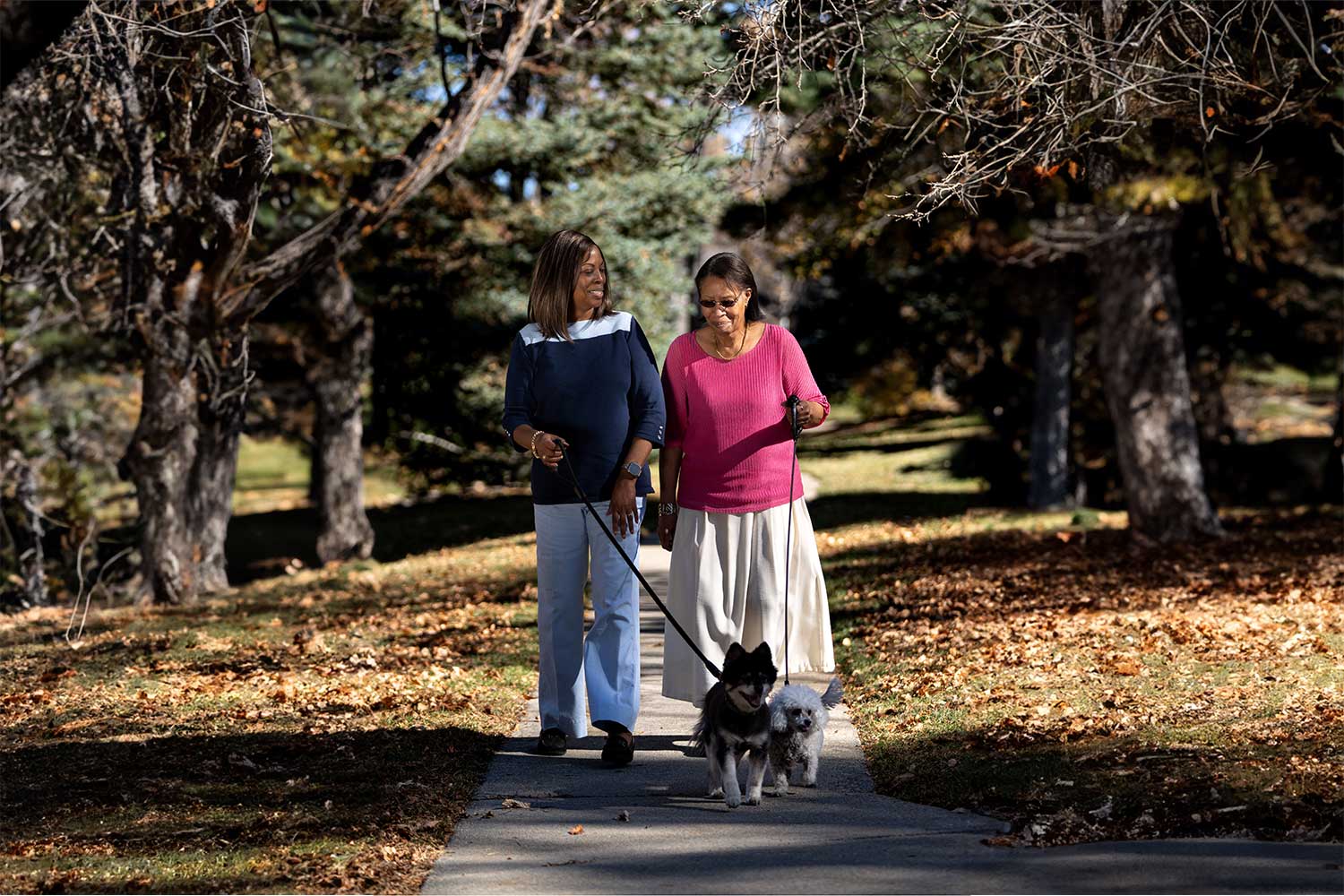You’ve Been Diagnosed with Lymphoma. Now What?
At Rocky Mountain Cancer Centers, we understand that a Hodgkin or non-Hodgkin lymphoma (NHL) diagnosis comes with a lot of decisions and questions that you’d like answered. We hope to address some of those questions and help you prepare for your first hematologic oncology visit.

What Kind of Doctors Treat Lymphoma?
It’s normal to assume you’ll need to see a cancer specialist called an oncologist when receiving a lymphoma diagnosis. In this case, you may already know the person who is going to treat you! If your lymphoma was diagnosed by a blood specialist, called a hematologist, this person is likely also a cancer specialist. Most hematologists are board-certified in hematology and medical oncology which means they can provide cancer treatment.
If you weren’t diagnosed by a hematologist, you should look for a hematologic oncologist for your lymphoma treatment plan.
When evaluating the cancer specialists in your area, consider their experience, their access to the latest treatments including clinical trials, and how close they are to you since you’ll have multiple appointments at the cancer center.
Other people will be involved in your care, such as:
Radiation Oncologist
Advanced Practice Providers
Triage Nurses
Infusion Nurses
Find a Lymphoma Specialist Near You
Prepare Some Questions Before You Arrive
It’s likely that you or a loved one has searched your diagnosis on the internet. This often brings up questions that you would like answered. Write them down and bring them to your first appointment. Here are some commonly asked questions that you can ask if the oncologist doesn’t provide that information at first.
- I know I have Non-Hodgkin (or Hodgkin) lymphoma but there are a lot of subtypes. What is my sub-type and what does that mean?
- Is my type of lymphoma considered aggressive or slow-growing?
- How does my type of lymphoma affect the treatments I’ll need?
- Is surgery a part of lymphoma treatment?
- Has the cancer spread to other areas of my body?
- How long do treatments last?
- What are the goals of the treatment you recommend?
- Are there any new treatment options or clinical trials I should be aware of?
- Should I stop taking certain medications, vitamins, or nutritional supplements?
- What side effects could I expect? What can I do to manage them?
Things to Bring to Your First Hematologic Oncology Appointment
If you were diagnosed by one of our hematologic oncologists they may have what they need to be able to stage the cancer and prepare a treatment plan. However, it’s always a good idea to bring your medication list including the drug name and dosage. If you don’t have a written list, take a photo of each bottle using your phone and bring that along to the appointment.
You may have already filled out a medical history form if you’ve seen one of our hematologists before your diagnosis. If not, consider filling the forms out online so you don’t have to do it during the first appointment
Create a binder or notebook before your first appointment to keep track of any questions and the answers you receive. It’s also a handy place to record future appointment dates and times.
Be sure your most recent insurance card is with you during this appointment.
Support from a Loved One
During your first appointment, there will be a lot of information reviewed, and it can be hard to process everything if you’re alone. Therefore, we encourage you to bring a relative or friend along. Read our recommendations on preparing for your first visit at Rocky Mountain Cancer Centers.
How Fast Do I Need to Make Decisions?
Although it’s important to act quickly, it’s also important to pause long enough to listen to the recommended treatment plan and consider all your questions. Different types of lymphomas spread at different rates and your RMCC cancer specialist will explain the timeframe they recommend to begin treatments and the order of treatments that will be given.
The blood cancer experts at RMCC are here to serve you with care, both physically and emotionally, as you journey through dealing with lymphoma.
Getting a Second Opinion
It’s only natural that you’d want to feel confident in the diagnosis and the doctor who will be taking care of you. This is why we encourage you, if possible, to get a second opinion before beginning any lymphoma treatment plan. At RMCC, our physicians provide many second opinions for all types of cancer diagnoses and treatment plans. While most insurance companies will cover a second opinion assessment, it’s best to check with your insurance provider to verify your coverage before making an appointment.
To schedule a second opinion with one of our physicians, please complete this form.
Support Groups & Patient Resources for Lymphoma Patients

At Rocky Mountain Cancer Centers, we understand this is a challenging time. However, you are not alone. We’re all here for you.
You might find our Patient Resources page helpful as well as local Cancer Support Groups that can help you and your family.
